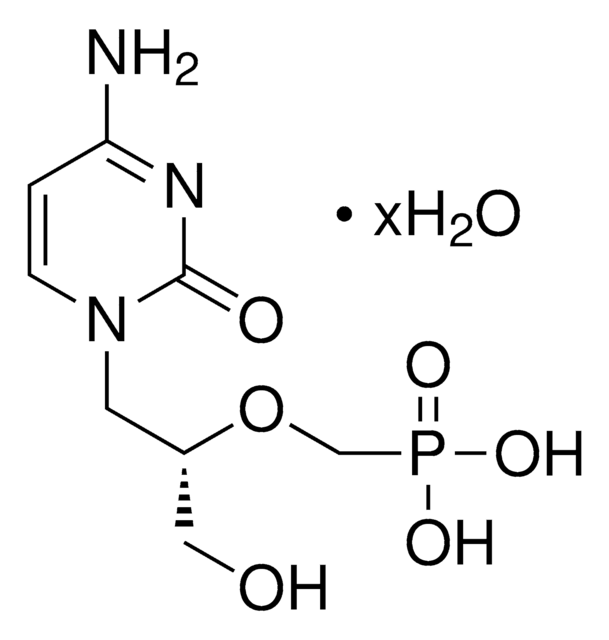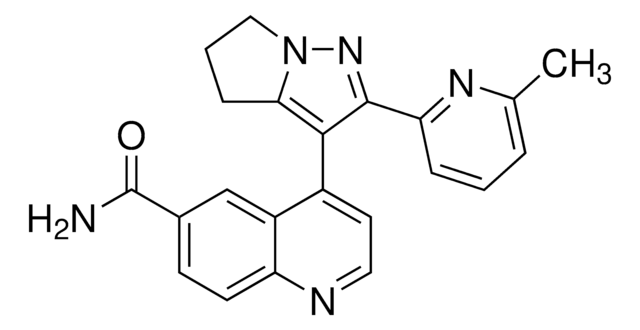SRP0236
PI3 kinase (p110d/p85a) Active human
recombinant, expressed in baculovirus infected insect cells, ≥80% (SDS-PAGE)
Synonym(s):
PI3-kinase p110 subunit delta, PIK3CD, Phosphoinositide-3-kinase, catalytic, delta, ptdIns-3-kinase subunit p110-δ
About This Item
Recommended Products
biological source
human
recombinant
expressed in baculovirus infected insect cells
Assay
≥80% (SDS-PAGE)
form
aqueous solution
specific activity
≥1.1 pmol/min-μg
mol wt
146 kDa (p110δ)
83.5 kDa (p85α)
packaging
pkg of 20 μg
concentration
>0.02 mg/mL
NCBI accession no.
UniProt accession no.
shipped in
dry ice
storage temp.
−70°C
Gene Information
human ... PIK3CD(5293)
General description
Application
Unit Definition
Physical form
Preparation Note
Signal Word
Danger
Hazard Statements
Precautionary Statements
Hazard Classifications
Eye Irrit. 2 - Repr. 1B - Skin Irrit. 2
Storage Class Code
6.1C - Combustible acute toxic Cat.3 / toxic compounds or compounds which causing chronic effects
WGK
WGK 1
Certificates of Analysis (COA)
Search for Certificates of Analysis (COA) by entering the products Lot/Batch Number. Lot and Batch Numbers can be found on a product’s label following the words ‘Lot’ or ‘Batch’.
Already Own This Product?
Find documentation for the products that you have recently purchased in the Document Library.
Articles
Glucose metabolism is regulated by the opposing actions of insulin and glucagon. Insulin is released from pancreatic ß cells in response to high blood glucose levels and regulates glucose metabolism through its actions on muscle, liver, and adipose tissue.
Our team of scientists has experience in all areas of research including Life Science, Material Science, Chemical Synthesis, Chromatography, Analytical and many others.
Contact Technical Service









